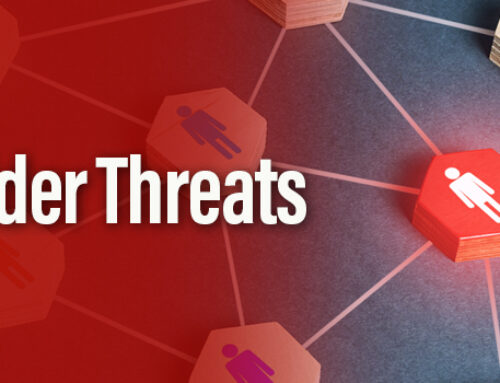
Is Ethical Hacking the defense strategy your business needs?
What is Hacking?
Hacking refers to unauthorized intrusion in a system or a network. The person involved in this process is called a hacker. They use the computer to commit non-malicious activities such as privacy invasion, stealing personal/corporate data, and more.
2. Ethical hacking…? What it is ?
Ethical hacking is also known as penetration testing or intrusion testing where the person systematically attempts to penetrate/intrude into a computer system, application, network, or some other computing resources on behalf of its owner and finds out threats and vulnerabilities that a malicious hacker could potentially exploit.
The main objective of ethical hacking is to improve the security of the system or network and fix the vulnerabilities found during the testing. Ethical hackers employ the same tools and techniques adopted by malicious hackers to improve security and protect the system from attacks by malicious users with the permission of an authorized entity.
3. What are the types of hackers?
Based on the hacker’s motive and legality of actions, they are divided into three types:
- Black Hat: These hackers are responsible to create malware; they gain unauthorized access to a system or network and harm its operations and steal sensitive information.
- White Hat: These hackers are also known as ethical hackers; they’re often employed by companies or government agencies to find out the vulnerabilities. They never intend to harm the system instead find out the weaknesses in the network/system as part of penetration testing and vulnerability assessments.
- Grey Hat: These hackers are a blend of both white hat and black hat hackers; they find out the vulnerabilities in a system without the owner’s permission or knowledge. Their intention is to bring the weaknesses in the system to the owner’s attention and demand some compensation or incentive from the owner.
Apart from the above well-known hackers, there are miscellaneous hackers based on what they hack and how they do it:
- Hacktivist: The person who utilizes technology for announcing social, religious, or political messages. Mostly hacktivism includes website defacement or denial-of-service attacks.
- Script Kiddie: The one who enters into the computer system using the automation tools written by others and has less knowledge of the underlying concept, hence the term kiddie.
- Elite Hackers: This is a social message among hackers that describes the most skilled ones. Recently identified exploits will circulate among these hackers.
- Neophyte: They are also known as green hat hacker or newbie who has no knowledge about the workings of technology and hacking.
- Blue Hat: The one who is outside of computer security consulting firms try to attempt a bug test to a system before its launch to find out the weaknesses and close the gaps.
- Red hat: They are a blend of both black hat and white hat hackers, usually employed by top security agencies, government agencies, etc., that fall under the category of sensitive information.
Is Ethical Hacking the defense strategy your business needs?
Whether ethical hacking is the defense strategy your business needs depends on various factors, including the size and nature of your business, the sensitivity of your data, and the potential cyber threats you may face. Ethical hacking, also known as penetration testing or white-hat hacking, involves authorized professionals simulating cyber attacks on a system or network to identify vulnerabilities before malicious hackers can exploit them.
Here are some considerations to determine if ethical hacking is the right defense strategy for your business:
- Risk Assessment: Conduct a thorough risk assessment to understand your business’s exposure to cyber threats. If your business handles sensitive customer data, financial information, or intellectual property, it may be at higher risk and could benefit from ethical hacking assessments.
- Industry and Compliance Requirements: Some industries, such as finance and healthcare, have specific regulatory compliance requirements related to data security. Ethical hacking can help you ensure compliance with these regulations and protect sensitive data.
- Security Budget: Ethical hacking services can be a significant investment. Consider your security budget and weigh the cost of ethical hacking against the potential costs of a data breach or cyber attack.
- Proactive Security Measures: Ethical hacking is a proactive approach to security. It allows you to identify and address vulnerabilities before they are exploited by malicious actors.
- Third-Party Vendors: If your business relies on third-party vendors for critical services or software, ethical hacking can help assess their security posture and potential risks they may introduce to your infrastructure.
- Incident Response Planning: Ethical hacking can be part of your incident response planning. It helps you identify weak points in your defenses and develop appropriate strategies to mitigate potential risks.
- Regular Assessments: Cyber threats are continually evolving, and new vulnerabilities may arise. Regular ethical hacking assessments can help you maintain a strong security posture and adapt to changing threats.
- Compliance with Ethical Standards: Ethical hacking ensures that your defense strategy aligns with ethical standards and follows legal boundaries. This approach can prevent potential legal and reputational issues associated with unauthorized hacking attempts.
- Internal Training and Awareness: Ethical hacking engagements can also serve as educational opportunities for your IT staff. They can learn about the latest attack techniques and best practices to enhance security awareness within the organization.
While ethical hacking can be a valuable defense strategy, it is just one component of a comprehensive cybersecurity program. It should be complemented with other security measures, such as network monitoring, access controls, regular software updates, and employee cybersecurity training.
Before engaging in ethical hacking services, it’s essential to work with reputable and experienced cybersecurity firms that follow industry standards and best practices. Ethical hacking should always be conducted with proper authorization and within the legal framework to ensure the protection of both your business and the security professionals involved.





